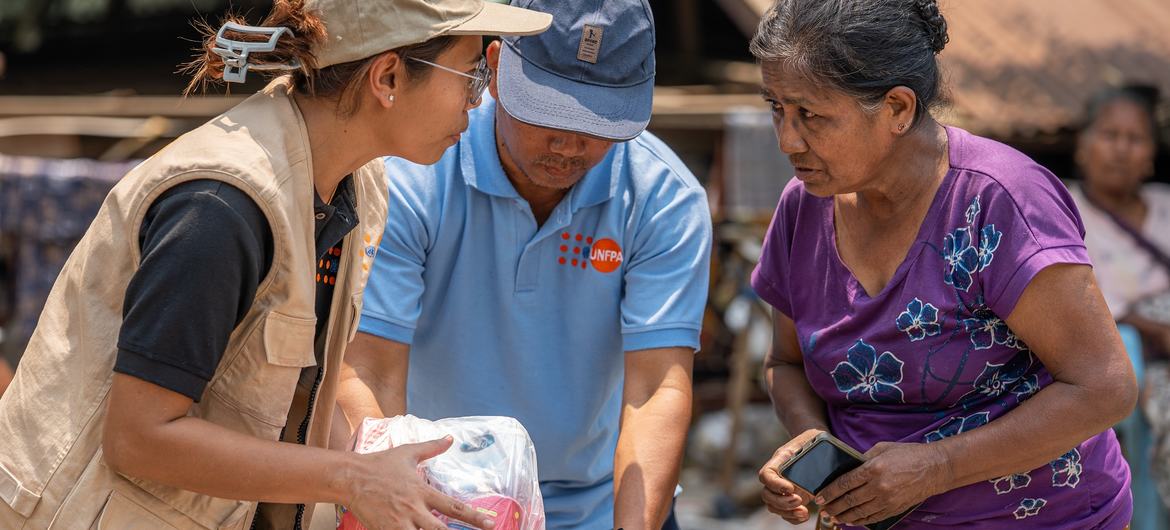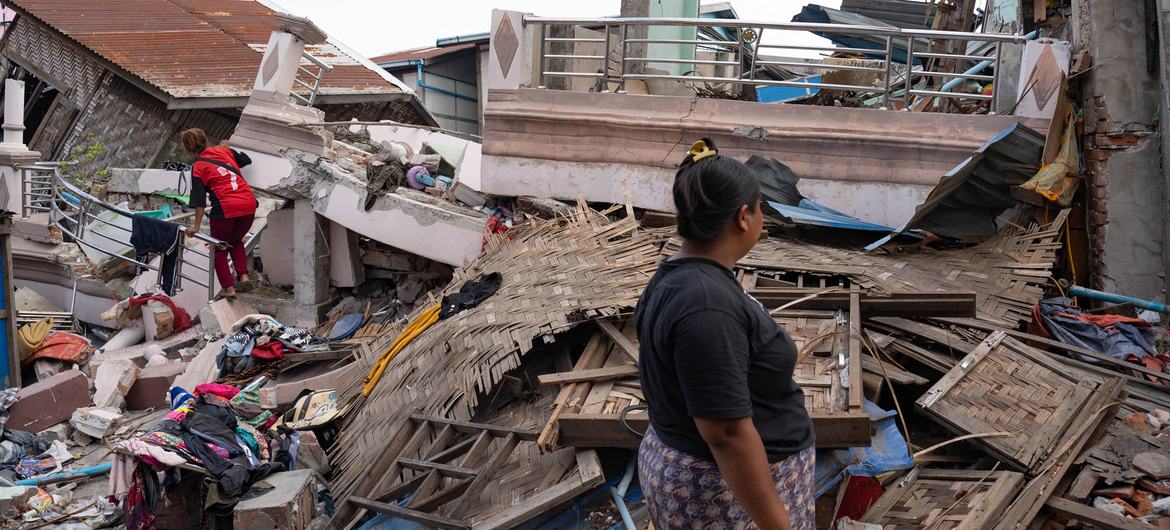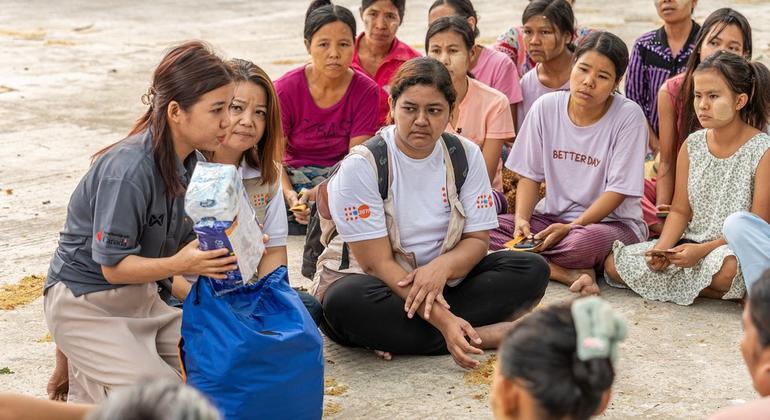Thein Zaw Win, Communications and Advocacy Analyst at the Yangon office of the United Nations Sexual and Reproductive Health Agency (UNFPA) saw the devastating consequences of the earthquake during a week -long visit to the Mandalay region, one of the regions most seriously affected by the disaster.
Thein Zaw Win, Communications and Advocacy Analysing at Unfpa’s Yangon Office, speaks with a woman affected by the recent earthquake in Mandalay, Myanmar.
“I was in Yangon when the earthquake struck. The next day, reports have gradually started to indicate that many cities had suffered significant victims. Buildings, roads, houses, schools and hospitals have been reduced to rubble and people were trapped under the debris.
The communication systems were broken down, so I decided to travel in the affected areas and support rescue efforts.
Women and girls needed rescue support, including sexual and reproductive health services and maternal care, dignity kits, hygiene articles and other essential supplies as soon as possible.
In 72 hours, the UNFPA country office had deployed a quick response team to provide essential services to the affected population, working with partners in the field.
Yangon’s trip to Mandalay usually takes about eight hours, but we had trouble passing, due to damaged roads and collapsed bridges. We had to find alternative routes and, sometimes, navigate in the robust fields next to the main road.
Now that the rainy season has started, the roads are even worse and travel has become more and more difficult. It took us over 10 hours to reach Mandalay.

A woman affected by the earthquake receives elements of rescue, including the dignity kits of UNFPA during the joint United Nations distribution in sagaing, Myanmar.
In certain areas of the city, debris have blocked the roads. The turn blocks had collapsed and many areas had been reduced to complete rubble. Desperate families have sought refuge in temporary shelters, in the streets or in front of their damaged homes.
The tremors continued for several days. Frequent power outages at night mean that certain affected areas have been plunged into darkness, which makes you dangerous to go anywhere. Attacking affected people and providing help under these conditions remains a considerable challenge.
My responsibility is to engage with the communities affected by the disaster and to share their stories with a wider audience. It is also essential to raise awareness among realities and needs in the field so that we can obtain support for emergency assistance. This is my mission.
I met a woman in Mandalay who visited our mobile clinic. She had lived in the city all her life but had never seen such a devastation. Everything collapsed in a few seconds. She was deeply worried about damage to health establishments, as well as her ability to access medical care.

A woman in Mandalay, Myanmar, looks at the devastation caused by the earthquake.
In the midst of this crisis, the UNFPA team provided services ranging from hygiene supplies, protection against sexist violence and mental health support for women and girls. They also support maternal and newborn care services. I have seen the unshakable resilience of humanitarian workers and the way in which the United Nations agencies, civil society organizations and NGOs work together.
Myanmar was already suffering from political instability and now it has been even more devastated by this destructive earthquake. It is extremely difficult to provide aid to the communities of Sagaing and Mandalay, where armed conflicts take place.
In the current context, with imminent monsoon conditions, people are terrified by what this season can bring.
The country is also experiencing the impact of falling funding for global aid.
The UNFPA, like the other United Nations agencies and humanitarian organizations, deals with constraints on resources, and we have appealed to emergency assistance to support populations in critical needs.
The suffering of women and children affected by the earthquake is deeply painful, and we need all our strength and our resilience to help them.
It is a heartbreaking experience of seeing despair in people’s eyes and listening to their loss stories, but we try to give them dignity and hope that they rightly deserve in these difficult times. “”




